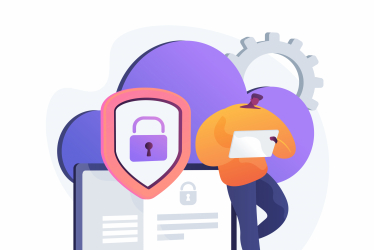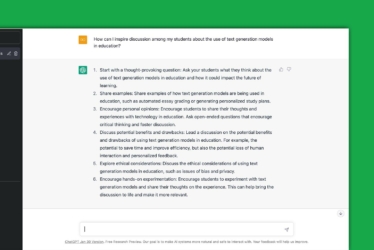Insights
Making IHL (International Humanitarian Law) Global
An interview with Prof. Robert Heinsch on how and why to make the MOOC “International Humanitarian Law in Theory and Practice” about IHL with the Centre for Innovation.
Prof. Heinsch is a visiting Professor at the Institute for International Law of Peace and Armed Conflict (IFHV) of Ruhr-Universität Bochum in Germanym and Associate Professor of Public International Law at the Grotius Centre for International Legal Studies and the founder and Director of its Kalshoven-Gieskes Forum (KGF) on International Humanitarian Law at Leiden University. In this capacity, Prof. Heinsch together with his colleagues from the KGF and the Center for Innovation (CFI) at Leiden University have developed this new International Humanitarian Law MOOC.
The course was launched on 12 November 2018.
How would you describe to someone without your kind of background, what international humanitarian law is and why it is important to learn more and have a discussion on this topic?
RH: International Humanitarian Law (IHL) is the law which regulates the behavior of the parties of armed conflicts, and tries to protect the vulnerable and mitigate the suffering of all people concerned. Unfortunately, in our present world, armed conflicts are being fought all over the world in different circumstances, and it is crucial for everyone to learn about what measures are allowed in these situations and what is not. Only if normal citizens, soldiers, commanders and politicians actually know about international humanitarian law, and how to apply it properly, we can prevent that civilians and medical personnel are directly targeted, prisoners of war are tortured, or unnecessary suffering and indiscriminate attacks are happening, for example through the use of chemical weapons. Basic knowledge of IHL is important for everyone!
Why did you decide to dedicate your personal and professional life to international humanitarian law? Why are you so passionate about this topic?
RH: I was raised by two parents who had survived the horrors of World War II and throughout my childhood explained to me how lucky I was that I was born during peacetime and had enough food on my table. They told me constantly how terrible it is that people are still fighting against each other. When I then had to do my compulsory military service when I was 19, the Gulf War in Kuwait/Iraq broke out. Seeing this made me decide, on the one hand, to apply for conscientious objector status, leave the military and do my community service with the Red Cross instead. On the other hand, I decided to study international law because I hoped to contribute at least a little bit towards a more peaceful international environment.
What were your main reasons to develop the online course International Humanitarian Law in Theory and Practice?
RH: I had the opportunity to study, teach and research international humanitarian law for more than 20 years, and throughout most of this time, I engaged in the dissemination of IHL either at university or on behalf of the Red Cross. Seven years ago, we founded the Kalshoven-Gieskes Forum on International Humanitarian Law at Leiden University, and shortly afterwards created its International Humanitarian Law Clinic where students can apply their theoretical knowledge to practical cases provided by humanitarian actors. At one point, we thought that it would be great if we could share our experience in teaching and disseminating IHL to a broader audience, realizing that there is a lot of demand for high-quality teaching courses in IHL. We hope that by developing this IHL MOOC we can reach participants who are interested in humanitarian law, but don’t have the chance to enroll in one of our courses here in Leiden, or at my current location of work at the Institute for International Law of Peace and Armed Conflict in Bochum.
“We would like to contribute to a further spreading of the knowledge of IHL on a global scale, and help to ensure that IHL is respected, implemented and enforced wherever we encounter armed conflict situations.”
– Robert Heinsch
Who have you made the online course for and what are you hoping it might achieve?
RH: We are mainly aiming at students from all over the world who are interested in international humanitarian law and want to get a first thorough insight into IHL, maybe in order to decide whether they want to enroll into a specialized Bachelor or Masters programme afterwards. But we also hope that this course can be of benefit for practitioners like journalists, soldiers or humanitarian aid workers who want to refresh their knowledge of IHL, or want to get further detailed information. Our idea is that we would like to contribute to a further spreading of the knowledge of IHL on a global scale, and help to ensure that IHL is respected, implemented and enforced wherever we encounter armed conflict situations.
Can you tell a bit more about the content of the course, what activities can the learners do?
RH: Our IHL online course consists of five modules which cover (a) an introduction into the history and basic principles of IHL, (b) the scope of application of IHL, (c) the rules governing the conduct of hostilities, (d) the rules protecting the persons not actively participating in hostilities, and (e) the implementation and enforcement of IHL. Through each of these five modules, participants can watch video lectures provided by two of my Leiden colleagues and myself, they can listen to expert interviews in podcast form with some of the leading authorities in the law of armed conflict, they can do quizzes and answer assignments, as well as engage in forum discussions with other students, and finally can solve the fictitious Arfula case study, applying their knowledge directly. Overall, we try to stimulate the participants on various levels and ensure that the learning process is as active as possible.
What makes this course unique; why should people enroll?
RH: This IHL online course offers a unique combination of high-quality video lectures, expert contributions from leading academics and practitioners, practical exercises, insights into current conflict situations, and the possibility to easily learn the rules governing the law of armed conflict in a very short time at your own learning pace. The course aims at bringing together theoretical knowledge and practical application, so that participants immediately can see why the rules they learn are so important. Due to the online format of the course, we were able to bring together experts from all over the world, and let them share their expertise with us: something which would never be possible in a normal classroom!




